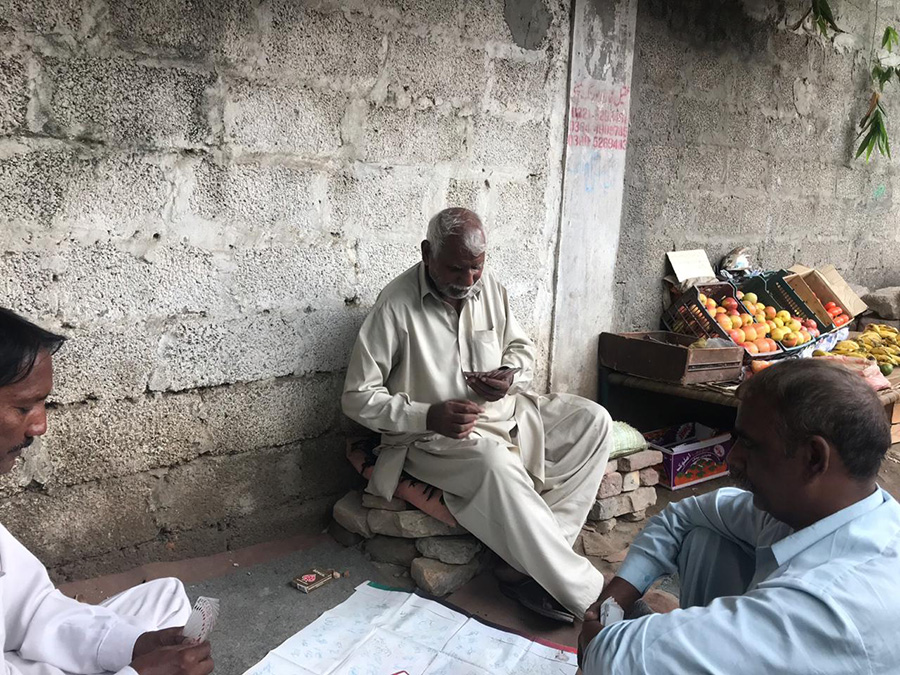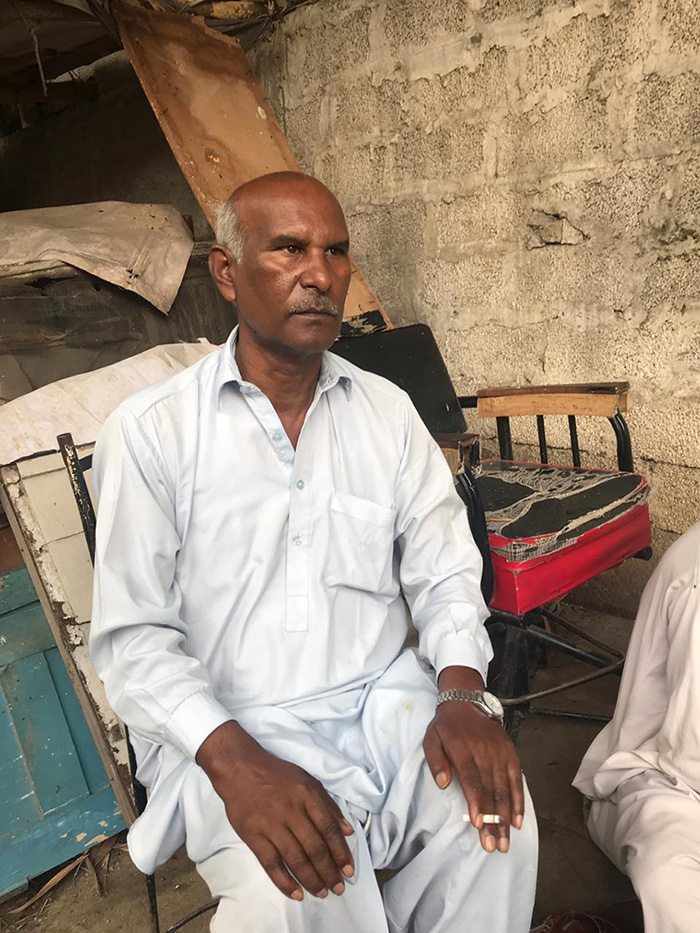Ilyas Masih doesn’t dream anymore. In the 75 years, he has lived, governments have come and gone, promises made and broken, aspirations raised and dashed. For the remainder of his life, the ageing slum dweller would rather play a game of cards every day, then chase state-sponsored dreams.
On October 10, the newly-appointed, and first-time prime minister, Imran Khan, inaugurated an ambitious and politically-charged project to construct five million affordable homes for the poor in Pakistan, as part of its anti-poverty crusade over five years. The next day, there were calls for applications. Registration forms were uploaded on the National Database and Registration Authority’s (NADRA) website for residents of seven cities, initially.

Ilyas Masih and his friends, who live in a small shanty town in the F-6/2 area of Islamabad, have heard of the programme. They are not impressed.
“We’ll have to wait and see if this really does happen,” said Saleem Masih, 58, shuffling a deck of cards. The Christian barber moved to the capital city from his village in the 1970s, after then-prime minister Zulfiqar Ali Bhutto raised a famous slogan of “roti, kapra, makaan” (bread, clothing and home) for everyone. It has been decades since, Saleem still does not have a home of his own. “Politicians come to our slums every election,” he went on, “They make big promises, but our lives don’t change.”
This government plans to house five million citizens in high-rise buildings which will be constructed in the kachi abadis, squatter settlements, of Islamabad. On hearing this, Saleem chuckled. “How do they plan to stuff our large families into small apartments?” Bhutto’s daughter, Benazir Bhutto, also envisioned low-income housing buildings for the poor in the 1990s. But those flats, adds the barber, were never completed.
If the government really wants to help us, says Lazhar Masih, another resident of the slum, it should rather erect small three-marla houses in the colonies. A similar resettlement project was initiated by the Pakistan Peoples Party government in the 1990s in the G-8 area of Islamabad. The project was personally overlooked by the former federal minister for minorities, J Salik.

In Pakistan, 24 per cent of the population lives below the national poverty line, according to a state survey done in 2015-16. (Updated figures are not available). The country’s headcount has already crossed 200 million and is likely to increase poverty as the population further increases.
Imran Khan came to power in August. Before the general election, he promised to create five million new homes, 10 million jobs and eliminate corruption within just 100 days of assuming office. But this month, his government had to reluctantly approach the International Monetary Fund (IMF) for a large bailout package to stabilise the economy. Experts predict the IMF’s strict conditions could force Khan to abandon large and expensive projects like the five million government-subsidised homes.
Yet, the ruling Pakistan Tehreek-e-Insaf (PTI) seems determined, to resettle rural dwellers.
Under Imran Khan’s directives, the Ministry of Housing and Works, Ministries of Law and Ministries of Finance are already hammering out a sustainable proposal that will be presented to the prime minister for approval.
“Islamabad will be made a model city for this project,” Sajid Manzoor Asadi, the acting director general of the Federal Government Employees Housing Foundation (FGEHF), told Geo.tv, “We will start by building around 200,000 homes for government officials as well as private people in the capital city.”
The project will be supervised by the newly-established Naya Pakistan Housing Authority. While its exact cost has yet to be calculated, public and private banks will be asked to bankroll construction through loans and short-term financing. Separately, according to officials, Pakistanis living overseas are also willing to chip in.
An official of the Ministry of Housing and Works insists that investors and builders are already queuing up. “The modalities and details are still being worked out but we are confident that the project will support other industries and will have a positive impact on the economy as well,” the official said, on the condition of anonymity.
Back at the slum in Islamabad, the game of cards continues. “If the government wants, anything can happen,” says Saleem, “but only if it wants.” The other men snicker. For now, any further debate about the prime minister and his promises has been shelved. “Listen, we don’t have time to discuss this,” adds Ilyas Masih, dismissively, barely looking up from his cards, “Why don’t you go speak to someone else for now?”


